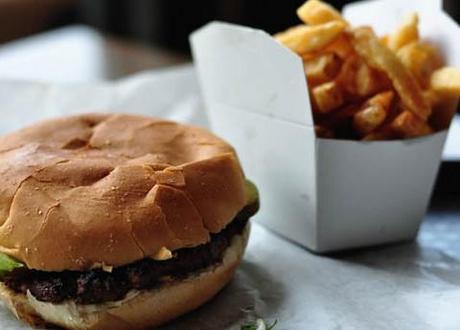
Hamburgers: To be replaced by Frankenburgers? Photo credit: L.Richarz http://www.flickr.com/photos/lricharz/6105308202/
Anyone for a lab-grown hamburger? If your answer is a resounding “Supersize me!”, you won’t have long to wait: The Independent reported that Dutch scientists plan to unveil the world’s first artificial meat burger in October. The burger “will be made from 3,000 strips of synthetic meat protein grown in fermentation vats” – presumably not a description that will show on restaurant menus any time soon. But gourmets can rest easy, as top experimental chef Heston Blumenthal is the frontrunner to cook the first Frankenburger.
For and against. Writing in The Independent, Steve Connor set out the pros and cons of artificial meat. On the plus side, lab-grown meat “would reduce the environmental impacts of livestock production, which the UN’s Food and Agriculture Organisation estimates account for 18 per cent of greenhouse-gas emissions” and could “provide a more sustainable way to meet demand from China and India, whose growing appetite for meat is expected to double global meat consumption by 2040″. On the other hand, yuk: “Consumers may find the notion of lab-grown meat creepy or unnatural,” said Connor, also pointing out that animals will still need to be slaughtered as the meat is produced from bovine stem cells.
“To produce the meat, stem cells are placed in a broth containing vital nutrients and serum from a cow foetus which allow them to grow into muscle cells and multiply up to 30 times,” wrote Nick Collins in The Telegraph.
PETA-approved. Aliss Skelton reported for Mashable that the artificial meat project is supported by People for the Ethical Treatment of Animals (PETA), who are also “urging scientists to create stem-cell chicken by the end of June for a $1 million prize”.
No thanks. Scientists should realize that this sort of food technology makes the public squeamish, wrote Rose Prince in The Telegraph: ”In-vitro meat production uses stem-cell technology and fetal material. How will we feel, eating the product of an animal that, never mind being kept in a factory farm, was never allowed life at all?” Prince questioned whether artificial meat will really have the environmental impact its proponents claim: “In-vitro meat won’t prevent greenhouse-gas emissions from livestock farms because dairy farms are a major source of methane, and milk cannot be made in a laboratory (yet).”
Vegburger. Frankenburger isn’t the only meat alternative in the works: The Huffington Post reported that a researcher at Stanford University has created “a vegetable-based product capable of winning over the taste buds and wallets of meat and dairy lovers”. “We have a class of products that totally rocks, and cannot be distinguished from the animal-based product it replaces, even by hardcore foodies,” said creator Patrick Brown.

